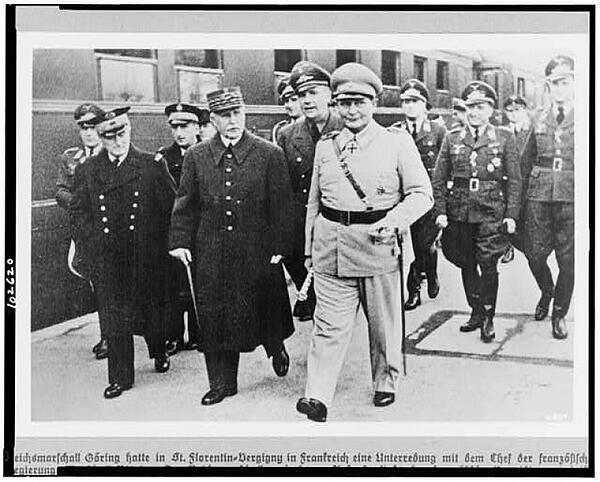Admiral Darlan
Admiral Darlan was a naval admiral and politician who collaborated with Nazi Germany during World War Two. He was assassinated in 1942.
Born in 1991, Darlan was educated at the French Naval Academy, where he graduated in 1902. He served in World War One commanding a battery of naval guns.
In 1929, Darlan was promoted to the rank of Rear Admiral. Darlan became Admiral of the Fleet in 1937 - a role created for him - and commanded the whole of France's navy.
The rapid successes of the German military convinced Darlan during the initial stages of World War Two that France should eventually accept Hitler.
Darlan supported Philippe Pétain’s appointment as head of the Vichy government in June 1940. Darlan became Minister of the Navy.

After France’s armistice with Germany in June 1940, the British launched ‘Operation Catapult’ against the French fleet on the coast of North Africa in July. Nearly 1,000 French sailors died and Darlan’s antipathy towards the British was strengthened. Ironically, evidence suggests that Darlan had no intention of allowing French warships to be taken over by the Germans. Darlan had in fact instructed the commander of the French fleet who was based in Toulon, after setting sail from its base near Oran, that every warship should be scuttled if they were seized by the Germans. If Britain was aware of this, it may not have been essential to perform 'Operation Catapult'.
Darlan became vice president in February 1941 and was designated Pétain's successor. He also took over the roles of Minister of Foreign Affairs, Minister of Defence and Minister of the Interior. Almost a year later in January 1942, he became Commander-in-Chief of the French armed forces and High Commissioner in North Africa. In April 1942, Darlan surrendered all of his cabinet positions - in accordance with Hitler’s wishes - but remained Pétain's deputy.
The Allies launched 'Operation Torch' in North Africa in November 1942. Despite the negotiations between French military figures and the American General Mark Clark, some French forces resisted. Allied commanders were anxious to avoid bloodshed and therefore decided to negotiate with Darlan. They reached a deal: if he ordered the resistance to end, the Allies would recognise him as French North Africa’s civil and military chief. As a result of this controversial agreement with a Nazi collaborator, the French army joined Allied forces in North Africa.
Charles de Gaulle and figures in the French Resistance were appalled by this compromise with a Nazi collaborator. However Churchill and Roosevelt agreed with Eisenhower: it was worth making the deal which would bring most of the French military in North Africa on board, and thus help the Allies fight the formidable German Afrika Korps.
On 24 December 1942, Darlan was assassinated in Algiers by a 20-year-old French Royalist, Ferdinand Bonnier de la Chapelle, who wanted to end the Vichy government and bring back the French monarchy.
See also: Sholto Douglas
MLA Citation/Reference
"Admiral Darlan". HistoryLearning.com. 2024. Web.
Key facts
| Name: | Admiral François Darlan(Born Jean Louis Xavier François Darlan) |
| Birth Date: | 7 August 1881, Nérac, France |
| Death: | 24 December 1942 (aged 61), Algiers, French Algeria |
| Country: | France |
| Military Biography |
|
